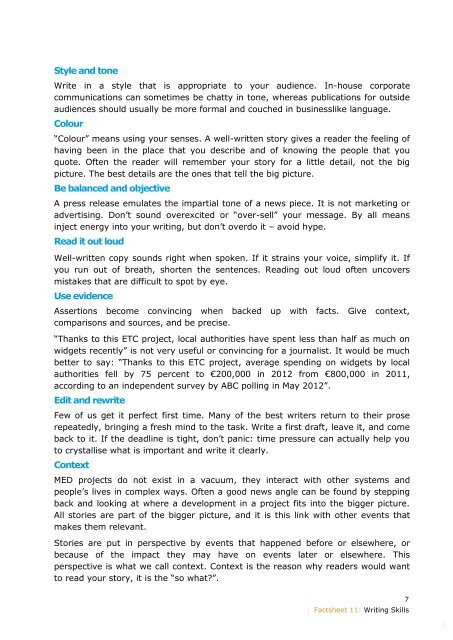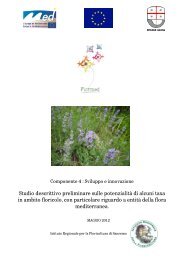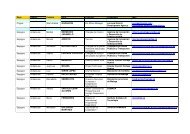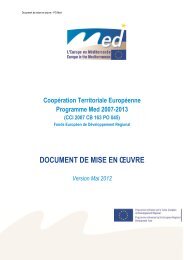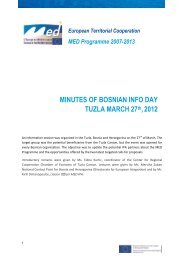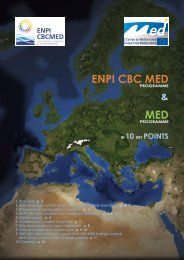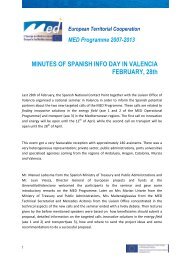MED Communication Handbook - Programme Med
MED Communication Handbook - Programme Med
MED Communication Handbook - Programme Med
You also want an ePaper? Increase the reach of your titles
YUMPU automatically turns print PDFs into web optimized ePapers that Google loves.
Style and tone<br />
Write in a style that is appropriate to your audience. In-house corporate<br />
communications can sometimes be chatty in tone, whereas publications for outside<br />
audiences should usually be more formal and couched in businesslike language.<br />
Colour<br />
“Colour” means using your senses. A well-written story gives a reader the feeling of<br />
having been in the place that you describe and of knowing the people that you<br />
quote. Often the reader will remember your story for a little detail, not the big<br />
picture. The best details are the ones that tell the big picture.<br />
Be balanced and objective<br />
A press release emulates the impartial tone of a news piece. It is not marketing or<br />
advertising. Don’t sound overexcited or “over-sell” your message. By all means<br />
inject energy into your writing, but don’t overdo it – avoid hype.<br />
Read it out loud<br />
Well-written copy sounds right when spoken. If it strains your voice, simplify it. If<br />
you run out of breath, shorten the sentences. Reading out loud often uncovers<br />
mistakes that are difficult to spot by eye.<br />
Use evidence<br />
Assertions become convincing when backed up with facts. Give context,<br />
comparisons and sources, and be precise.<br />
“Thanks to this ETC project, local authorities have spent less than half as much on<br />
widgets recently” is not very useful or convincing for a journalist. It would be much<br />
better to say: “Thanks to this ETC project, average spending on widgets by local<br />
authorities fell by 75 percent to €200,000 in 2012 from €800,000 in 2011,<br />
according to an independent survey by ABC polling in May 2012”.<br />
Edit and rewrite<br />
Few of us get it perfect first time. Many of the best writers return to their prose<br />
repeatedly, bringing a fresh mind to the task. Write a first draft, leave it, and come<br />
back to it. If the deadline is tight, don’t panic: time pressure can actually help you<br />
to crystallise what is important and write it clearly.<br />
Context<br />
<strong>MED</strong> projects do not exist in a vacuum, they interact with other systems and<br />
people’s lives in complex ways. Often a good news angle can be found by stepping<br />
back and looking at where a development in a project fits into the bigger picture.<br />
All stories are part of the bigger picture, and it is this link with other events that<br />
makes them relevant.<br />
Stories are put in perspective by events that happened before or elsewhere, or<br />
because of the impact they may have on events later or elsewhere. This<br />
perspective is what we call context. Context is the reason why readers would want<br />
to read your story, it is the “so what?”.<br />
7<br />
� Factsheet 11: Writing Skills<br />
�


